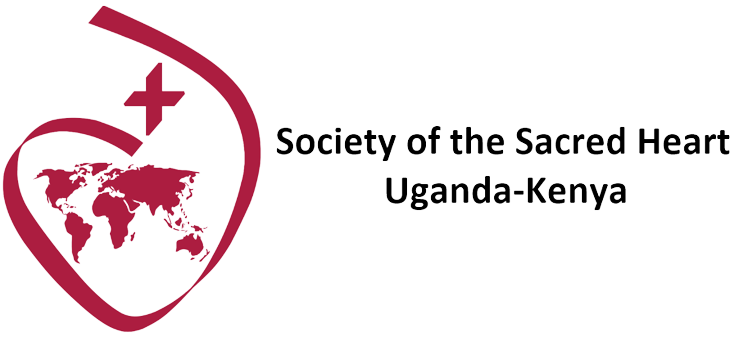1st Sunday of Lent Year
First Reading: Genesis 9:8-15: God establishes a covenant with Noah, his descendants, and every living creature, promising no future floods will destroy all life. The rainbow, set in the clouds, symbolizes this perpetual covenant, a reminder to God and humanity of this promise.
Responsorial Psalm: Psalm 25: I ask the Lord to teach me His ways, trusting in His salvation. Remembering His mercy and love, He guides the humble, showing the paths of righteousness to those who follow His covenant.
Second Reading: 1 Peter 3:18-22: Christ suffered for our sins to reconcile us with God, resurrected in Spirit. He preached to spirits from Noah’s time, paralleling baptism that saves us—not by physical cleansing but as a commitment to God, empowered by Christ’s resurrection and heavenly reign.
Gospel: Mark 1:12-15: After forty days in the wilderness, facing Satan’s temptations among wild beasts and aided by angels, Jesus commenced his public ministry in Galilee. He proclaimed the nearness of God’s Kingdom, urging repentance and acceptance of the gospel, especially following John’s arrest, marking a pivotal moment in his mission.
The Spirit drove Jesus out into the desert, and he remained in the desert for forty days, tempted by Satan.
A Prayer for Guidance Based on Psalm 25
Mark’s gospel introduces Jesus as the divine Son of God, beginning with His baptism and subsequent temptation in the wilderness. These events highlight Jesus’ identity and His unwavering commitment to God’s mission, setting the stage for His ministry. Mark’s narrative emphasizes Jesus’ dual nature as divine and human, underscoring the Incarnation. Themes of discipleship, repentance, forgiveness, and the growth of faith are central, challenging all of us as Christians to deepen our commitment and trust in God. This gospel calls for a re-examination of personal faith, inviting us to embrace sacrifice, seek forgiveness, and grow in faith through Jesus’ teachings and actions.
Hope and Transformation
The Noahic Covenant
The story of Noah and the Flood in the first reading is a powerful narrative of destruction and renewal of divine judgment and God’s mercy extended to His creation. It’s a story that resonates deeply during Lent, a season dedicated to introspection, repentance, and renewal.
As Noah found favor in the eyes of the Lord amidst a world consumed by wickedness, we are reminded of the importance of living righteously and the possibility of being righteous in a world often marred by sin. The covenant God establishes with Noah, signified by the rainbow, is a testament to His enduring love for all creation and His promise never to destroy the earth with a flood again. This covenant is not merely a historical account but a living promise that extends to us today. It invites us to reflect on our relationship with God and with creation. Just as Noah was tasked with caring for the earth and its creatures, we too are called to be stewards of the world around us.
The 1st Sunday of Lent Year B provides us an opportunity to reassess how we live this call, encouraging us to engage in practices that reflect our commitment to God’s creation. Through prayer, fasting, and almsgiving, we seek not only personal purification but also a way to contribute positively to the world around us, embracing our role in God’s ongoing creation.
In the Wilderness
The gospel of Mark presents a compelling juxtaposition of the story of Noah with Jesus’ temptation in the wilderness. This narrative is rich in symbolism, portraying Jesus as the new Adam who, unlike His predecessors, withstands the temptations of Satan. His time in the wilderness, among wild beasts and attended by angels, echoes the harmony of creation envisioned in Isaiah’s prophecy. This setting underscores the peace and reconciliation that Christ brings to all creation, including humanity and the natural world. Jesus’ resistance to temptation in the wilderness is emblematic of the Lenten journey. It challenges us to confront our own wilderness, the deserts of temptation, and the spiritual dryness we may face. His victory offers us hope and a model for overcoming our own struggles with sin and temptation. By following Jesus’ example of prayer and reliance on God’s word, we can navigate the wilderness of our lives, fortified by the grace of God.
Hope and Transformation
The proclamation of the Kingdom of God by Jesus in the Gospel is a message of hope and an invitation to transformation. He calls us to repentance and belief in the Good News, signalling a new era of divine closeness and the possibility of a renewed relationship with God. This message is at the heart of the Lenten season. It encourages us to turn back to God, embrace the transformative power of the Gospel, and participate actively in the unfolding of God’s kingdom.
This transformative call extends beyond personal renewal to encompass the whole of creation. We are invited to be agents of change in the world, embodying the hope and renewal that Jesus preaches. By living out the values of the gospel—love, justice, and peace—we contribute to the realization of the Kingdom of God on earth. This very much echoes with our late heroine Sr. Margaret Conroy, (RIP).
Our Lenten practices of prayer, fasting, and almsgiving become means through which we engage with the world, seeking not only our own conversion but also the healing and restoration of all creation.
In reflecting on these themes, Lent emerges as a season of considerable significance. It is a time for renewal, facing temptations with courage, and embracing the transformative power of the gospel. Through the lens of the Noahic covenant, Jesus’ temptation in the wilderness, and His proclamation of the Kingdom, we are invited to a deeper understanding of our faith and our role in the world.
As we journey through Lent, let us be mindful of our call to stewardship, overcoming adversity, and living out the hope of the gospel in every aspect of our lives.
Consolata Khakaali, RSCJ
